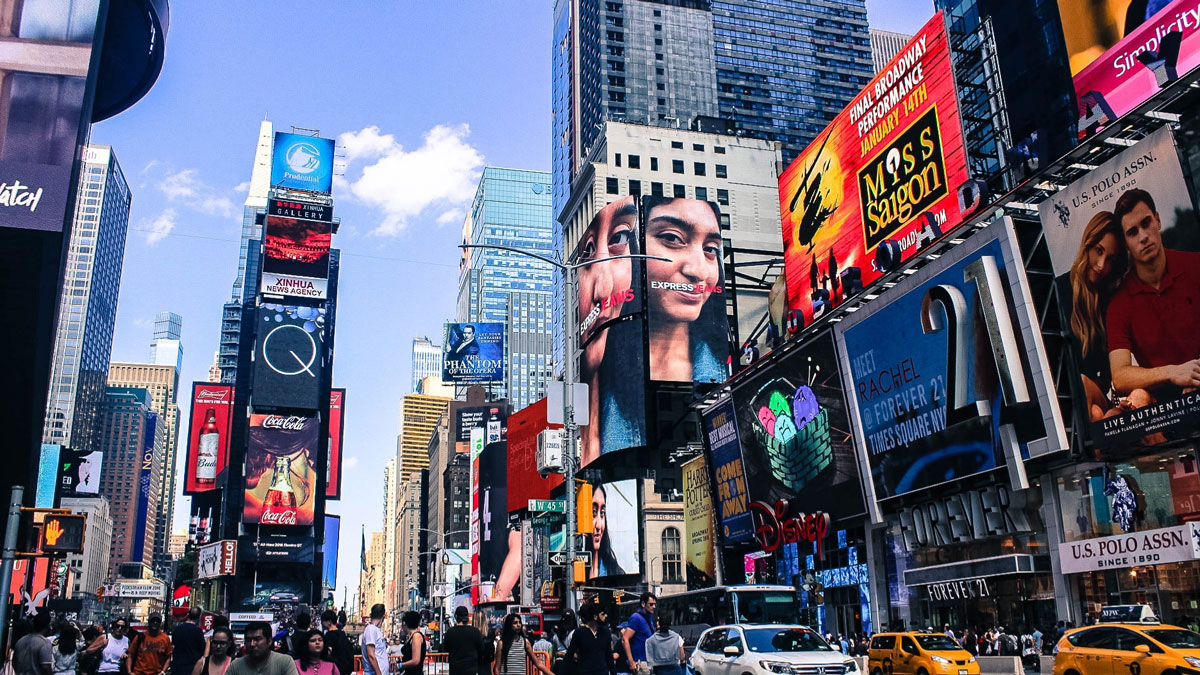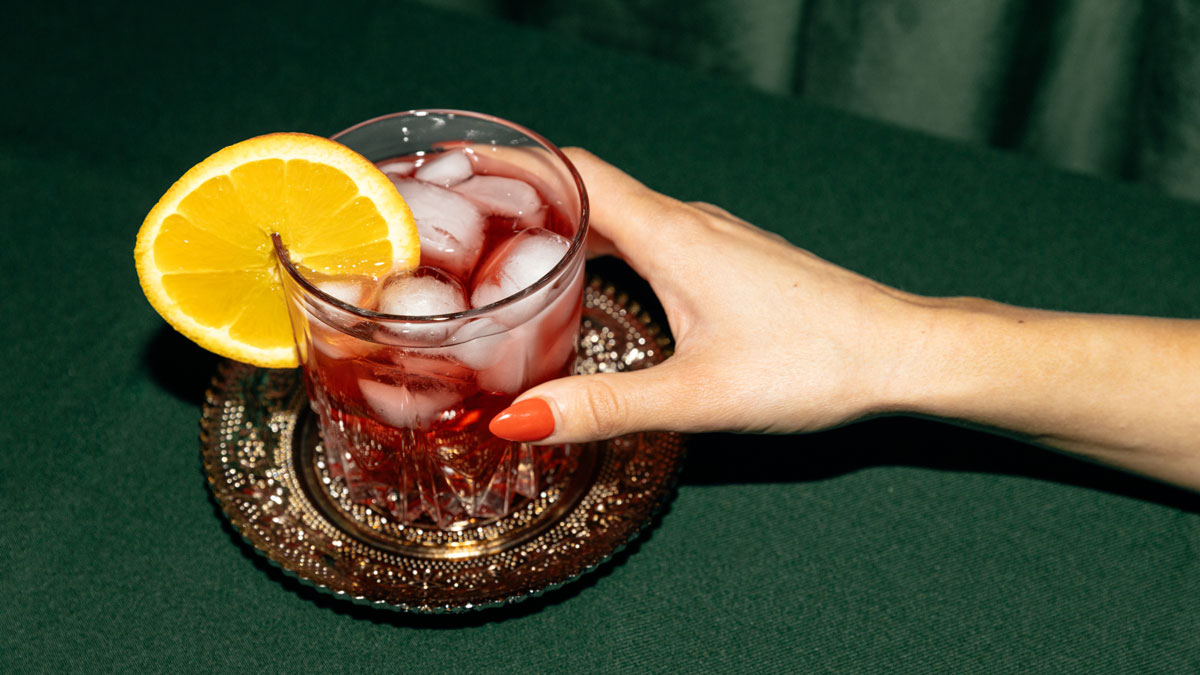Addiction | 4 min read
Enjoy A Sober NYC Night Out: Where To Find Zero-Proof Drinks In New York
Medically Reviewed By

01/08/2024
Written By
On January 8, 2024

What you will learn
- Zero Proof drinks are similar to beers, wine, and cocktails but without ethanol.
- Living in sobriety can be challenging for your social life but zero proof drinks make it safer to enjoy a night out.
- There are a number of breweries, cafes, and eateries that sell or serve zero proof alcohol drinks.
There’s been a cultural shift in recent years toward healthier living. Zero-proof drinks, also known as non-alcoholic or alcohol-free beverages, are part of this shift, leading to restaurants, bars, and nightclubs offering zero-proof alternatives to traditional cocktails. If you’re in recovery and looking for a night out on the town, learn more about zero-proof drinks, what they are, why they’re popular, and where you can find them locally in NYC.
What Is Zero-Proof Alcohol?
The potency of alcoholic beverages is measured in alcohol proof, which is its ethanol content. The higher proof the alcohol is, the stronger it is. Though alcohol proof has been used throughout history and shows up on beverage labels because of long-standing tradition, alcohol in the US has a percentage alcohol by volume (ABV) on the label to gauge its potency.[1]
In the spirit of alcohol proof, zero-proof alcohol is an “alcoholic” beverage with no alcohol. It’s also known as 0.0 spirit, alcohol-free spirits, plant-based alcohol alternative, and more. Any zero-proof alcohol must have less than 0.5% ABV, which is much lower than virtually any alcoholic beverage – beer, wine, or liquor – which can range from 4% for most beers to 40% or higher for distilled spirits.[2]
The purpose of zero-proof alcohol is to offer more variety for people who abstain from alcohol or are in recovery. Previously, people only had the option of soft drinks or non-alcoholic beers. Now, there are over 120 zero-proof alcohol brands on the market.
With options for just about every conventional spirit, zero-proof alcohol offers the same complexity and flavor for cocktails, or “mocktails,” without the alcoholic content. Some are distilled, others have additives like capsaicin to mimic the burning sensation of stronger liquor.
Some of the popular brands of zero-proof alcohol include:
- Seedlip
- Arkay Beverages
- Ritual Zero Proof
- Damrak Virgin
- Spiritless Kentucky 74
- Zepeim Premium Beverages
- Strykk
- Brooklyn Brewery
- Heineken 0.0
- Athletic Brewing Company
Where to Get Zero-Proof Drinks in NYC
With so many popular zero-proof alcohol brands, bars, restaurants, clubs, and other venues are stocking the shelves with non-alcoholic spirits to make mocktails. Here’s where you can enjoy zero-proof drinks in NYC:
Upscale Bars and Restaurants
Many high-end bars and restaurants in the city understand the growing demand for zero-proof options and have carefully curated mocktails using zero-proof alcohol and the creativity of mixologists.
Here are some places to check out:
- Jungle Bird: Named for the signature welcome drink at the Kuala Lumpur Hilton in the 70s, Jungle Bird has a retro tropical vibe that stands out in Manhattan’s Chelsea neighborhood. There’s a signature zero-proof menu, so you can find plenty of cocktail options like “The Weeknd,” a blend of coconut syrup, pineapple, ginger, cinnamon, lime, and Seedlip’s Spice 94 gin.
- 53: 53 is one of the most exquisite dining rooms in NYC and offers a diverse menu complete with zero-proof drinks. Options like the No G&T, which is made with Lyre’s London Dry and lemongrass tonic, pair perfectly with upscale food, art collections, and luxurious design.
- NARO: Tucked into the Rockefeller Center, Naro features a supreme tasting menu with old-world Korean fare and perfect mocktail pairings like the Ibchu Shrub, which is made from grapes, Seedlip Grove, Korean pepper, and prickly ash.
Cozy Dive Bars and Craft Cocktail Spots
If you prefer a relaxing dive bar atmosphere or pub-style spot, there are plenty of dives and cocktail spots.
- The Dead Rabbit: The Dead Rabbit is a cocktail den with wooden furnishings, a taproom, and a cocktail parlor to suit your tastes. The bar offers a bunch of non-alcoholic cocktails like the Death Warmed Up, TLC, and virgin Irish coffee.
- Lord’s: Modeled after a cozy British pub, Lord’s in Greenwich Village features British bistro food with alcohol-free twists on classic drinks like Negronis and Ghia sours.
- Talea Beer Co.: Talea Beer Co. in Williamsburg is a woman-owned operation with non-alcoholic brews that rotate by season and are paired with classic brewery bites like Bavarian pretzels.
Cafes and Eateries
Aside from bars and restaurants, NYC has plenty of specialty cafes, juice bars, and eateries that have zero-proof options.
- Sunday in Brooklyn: With a separate menu for brunch and dinner cocktails, Sunday in Brooklyn is a great brunch spot with zero-proof cocktails and American-style diner food. One of the top drinks is a Mango Daisy, which is made with mango, pomegranate, lim, tajin salt, and Seedlip Grove.
- The Fat Radish: The Fat Radish in the Lower East Side is for veggie lovers and offers solid mocktails and plant-based dishes. Most of the drinks use Seedlip’s range for tropical flavors that pair with veggie food.
- abcV: With housemade sodas and tonics, bee pollen shakes, and fresh juices, abcV features organic food and drinks with non-alcoholic mixes. For example, the Kin Spritz is a cocktail made with Rhodiola, hibiscus, and citrus.
Is Zero-Proof Alcohol Safe for People in Recovery?
It’s important to understand that some zero-proof alcohol uses no alcohol at any point in the process, but others may use alcohol in production or fermentation that doesn’t make it into the final product – but it’s still legally a non-alcoholic beverage.
In addition, zero proof can be anything at or below 0.5% ABV. This is extremely low and unlikely to get any intoxicated, but it’s not exactly zero. Trace amounts of alcohol can be a trigger for some people, including zero-proof alcohol, mouthwash, or cold medication.
Another concern is whether being in a situation involving alcohol will be a trigger for you in recovery, even if you’re not drinking actual alcohol yourself.[3] For some, it’s not just about the drinking of alcohol but everything that goes with it.
In addition, zero-proof alcohol is designed to look, smell, and taste like real alcohol to mimic the experience of drinking a cocktail and make social settings more inclusive, such as weddings or other celebrations. The packaging is also similar.
If you’re struggling with alcohol triggers, carefully consider whether drinking zero-proof alcohol that resembles real alcohol and elicits the same sensory responses will make you feel more included or entice you to take the step from a mocktail to drinking beer, wine, or liquor.
Enjoy a Night Out in NYC
If you’re in recovery from alcohol use disorder and need to avoid alcohol – but want to have some fun in the city – there are plenty of options for zero-proof drinks. Mocktails and non-alcoholic beers give you the social experience of drinking without the adverse effects to stay on track with your recovery.
If you’re looking for something to do in New York besides drinking, see here:
If you find yourself struggling with sobriety, reach out to our Queens rehab center for support.
Frequently Asked Questions About Zero-Proof Drinks In New York
There are many people who choose not to drink alcohol, and not just because of recovery. Some people may abstain because of health conditions, medications, health, or religious reasons. Zero-proof alcohol offers a more exciting alternative to drinking juice, soda, or water at a bar, nightclub, or wedding, allowing them to benefit from the social aspects of alcohol without risking intoxication.
It depends on the brand. Generally, zero-proof alcohols are designed to taste similar to the spirits they’re imitating and offer a similar sensory experience. For example, non-alcoholic beer has a hops and barley flavor like real beer, while a non-alcoholic whiskey will incorporate oak and spiced flavors like barrel-aged whiskey. Some have botanicals to add flavor to cocktails without trying to imitate a specific type of alcohol.
Some non-alcoholic drinks have zero alcohol at any point in the production process, so they’re truly zero-proof. Others use alcohol for distillation or fermentation, but it’s removed before the final product hits the shelves. Some may fall under the threshold of 0.5% ABV, so they have too little alcohol to get you intoxicated, but they’re not technically alcohol-free.
Ascendant New York Editorial Guidelines
Here at Ascendant New York, we understand the importance of having access to accurate medical information you can trust, especially when you or a loved one is suffering from addiction. Find out more on our policy.
[1] MediLexicon International. (n.d.). What does the proof of alcohol mean?. Medical News Today. Retrieved from https://www.medicalnewstoday.com/articles/what-does-the-proof-on-alcohol-mean#:~:text=Proof%20is%20a%20measure%20of,40%25%20ABV%20is%2080%20proof on 2023, November 28.
[2] What are zero alcohol drinks?. What are zero alcohol drinks? – Alcohol and Drug Foundation. (n.d.). Retrieved from https://adf.org.au/reducing-risk/alcohol/zero-alcohol-drinks/what-zero-alcohol/ on 2023, November 28.
[3] Caballeria, E., Pons-Cabrera, M. T., Balcells-Oliveró, M., Braddick, F., Gordon, R., Gual, A., Matrai, S., & López-Pelayo, H. (2022, September 22). “doctor, can I drink an alcohol-free beer?” low-alcohol and alcohol-free drinks in people with heavy drinking or alcohol use disorders: Systematic review of the literature. Nutrients. Retrieved from https://www.ncbi.nlm.nih.gov/pmc/articles/PMC9571501/ on 2023, November 28.




